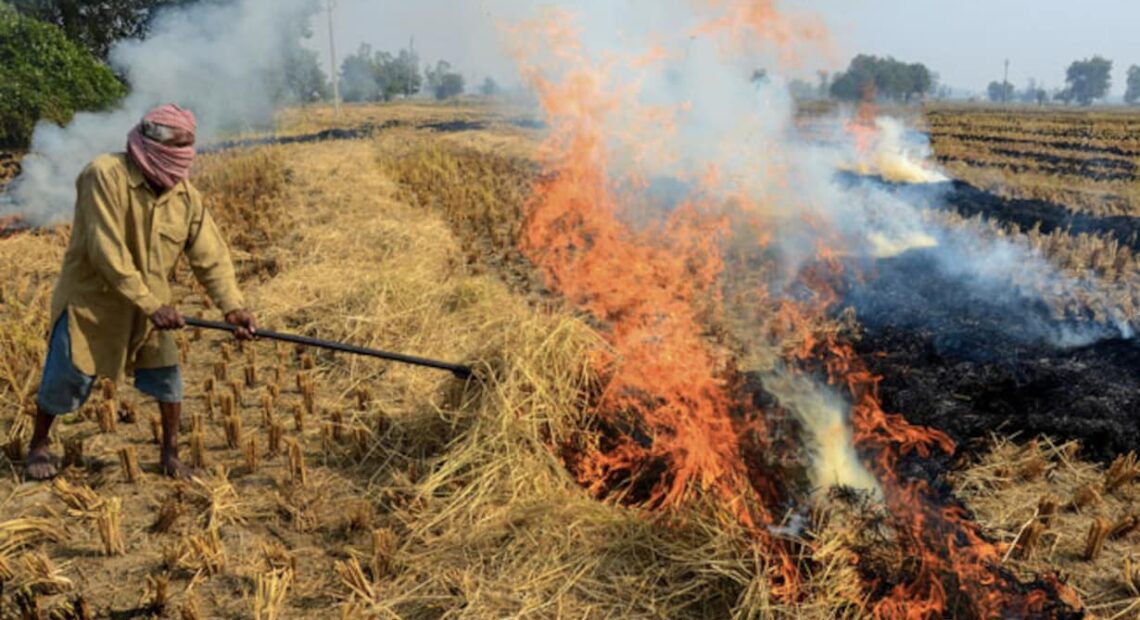To Fight India’s Deadly Smog, Farmers Told To Sell Crop Waste

To speed up the process of putting an end to fires that spread a deadly, suffocating haze across important towns, farmers in India are being encouraged to sell their agricultural waste rather than burn it. During the chilly months of November and December, smoke from burning crop stubble covers the majority of north India for weeks at a time, with the air quality in some regions, notably the nation’s capital New Delhi, degrading to dangerous levels.
A startup called BiofuelCircle, situated in the city of Pune in western India, aims to link farmers with businesses that can convert their trash into briquettes for burning in power plants or ethanol for blending with liquid fuels.
“The environmental issues due to crop residue burning are mainly because of the inefficiency of the supply chain,” BiofuelCircle founder Suhas Baxi said. “The business case for building a stable and reliable supply chain is very solid.”
India hopes to generate electricity from its 230 million tonnes of agriculture waste and enormous mountains of household trash each year to help cut down on fuel imports and enhance air quality. According to Mr. Baxi, using the entire nation’s crop waste supply for bio-energy might result in up to $50 billion in yearly revenue if there was enough infrastructure and demand.
But development has been gradual. Farmers currently still burn the majority of their crop leftover because there isn’t a solid supply chain that links timely purchase with storage, processing, and, ultimately, a market for the products. Only 20 to 30 percent of farm waste is used, largely to make lower-quality briquettes that are combined with coal and used in industrial boilers.
Although there has been considerable development, the market for other goods including compressed biogas, sustainable aviation fuel, and biodiesel is still in its infancy. Retail gasoline now contains nearly 10% more ethanol than it did in 2014, when Prime Minister Narendra Modi began his first term in office. At that time, it was only 1.4%.
The administration of PM Modi has also been supportive of efforts to stop stubble burning, providing subsidies for the purchase of equipment to collect crop residue and establishing regulations requiring coal plants to employ at least 5% biomass.
Picture Courtesy: Google/images are subject to copyright







